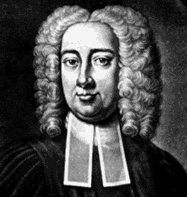Hooper, William

William Hooper was born in Boston, Massachusetts in 1742. Originally trained for the ministry, Hooper studied at the Boston Latin School and at Harvard College. He went on to reject the ministry though, choosing instead to study with the radical lawyer, James Otis. In 1764 he moved to Wilmington, South Carolina.
Not long after he arrived, his political aspirations began to grow, and in 1770 he landed a position as deputy attorney general of North Carolina. At first, in order to protect his economic interests, he was an ally of the Royal Governor, William Tryon.
A few years later, however, Hooper realized that he could no longer give the royal government his support. It was not long before he became an important Whig leader. He was elected to the Continental Congress in 1774. In this same year he wrote a famous letter which contained the earliest known prediction of the colonies’ split from Britain. This letter would later earn him the title of “Prophet of Independence." While at the Congress, Hooper found himself frequently traveling back and forth from Philadelphia to North Carolina in order to serve on his home state’s provincial assembly. He left Congress for good in 1777 as a result of worries about his legal practice and a desire to be closer to home. Not long after he was elected to the State legislature where he served until 1786.
Once the Revolution was over, Hooper’s conservative reactions to republicanism, a general lack of faith in common people, and a lenient attitude in regard to Loyalists, caused him to lose a substantial amount of political support. He was a strong supporter of the Federal Constitution, however, and he campaigned fiercely for its ratification. In 1790, overcome by weakness and ill health, he passed away at the age of forty-eight. His grave lies in the Guilford Courthouse National Military Park not far from Greensboro, North Carolina.
 >
>